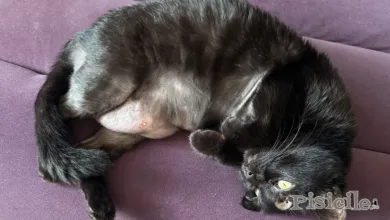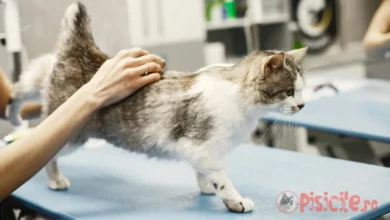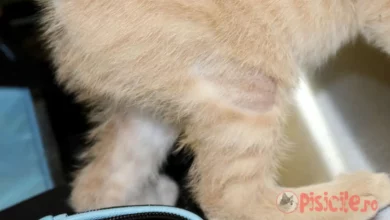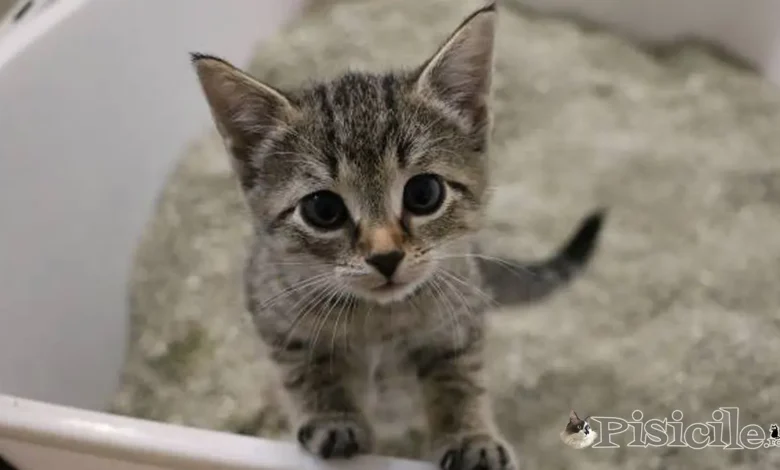
Unfortunately, diseases of the kidney system in cats are found in a rather large percentage. When you notice that your cat starts drinking a lot of water, urinates frequently, has difficulty urinating, goes in and out of the litter box often, or licks its genital areas, it may be a problem with the kidney system.
All these conditions of the renal system require urgent consultation at a veterinary office. The vet will determine whether it is cystitis, urethritis, urolithiasis or a urinary tract infection, and will prescribe a treatment to resolve the condition the cat is suffering from.
Subject
Feline idiopathic cystitis
Idiopathic cystitis is one of the most common conditions of the renal system in cats. Cystitis can be caused by bacterial infections, nervous system disorders, bladder stones or diabetes.
Possible causes of idiopathic cystitis in your cat:
- Bacterial cystitis, less common in young and middle-aged cats, occurs when bacteria from the cat's intestinal tract migrate to the urinary bladder.
- The presence of stones in the urinary bladder.
- Tumors of the urinary bladder. (These are quite rare in cats).
- Disorders of the nervous system, which can prevent the cat from completely urinating.
- Conditions such as diabetes, Cushing's disease, the use of cortisone drugs or cytostatics, can predispose to the appearance of cystitis.
Signs that could indicate the presence of cystitis in cats include: the presence of blood in the urine, difficulty urinating or increased frequency of urination.
Treatment for feline idiopathic cystitis involves taking a medication for 5-7 days. In the case of bacterial cystitis, the treatment consists of taking antibiotics for 2-3 weeks. For cats that frequently suffer from bacterial cystitis, investigation is recommended to identify the causes that predispose them to this condition. It can be disorders of the nervous system or tumors of the urinary bladder.
Prevention of cystitis in cats is very simple. It is recommended that you give your cat unlimited access to fresh, clean water and a litter box so that he can urinate whenever he wants.
Urolithiasis. Disease of the renal system in the cat
Urolithiasis, also known as the formation of sand or stones in the urinary bladder, is a common condition in cats. This is manifested by bloody urine, increased frequency of urination or difficulty urinating. Stones can migrate from the bladder into the urethra, thus blocking the urethra, which can prevent the cat from urinating.
In our experience with a kitten, this condition becomes extremely painful when the cat has a full bladder and can no longer urinate. The emergency intervention of the veterinarian is required, who with medication and specific techniques will unblock the cat's urethra. In most cases, the only treatment is surgery.
The formation of stones in the bladder of cats is caused by the excessive presence of mineral salts in the urine, such as magnesium, phosphorus and calcium. In these cases, it is recommended to feed foods that contain these substances in a balanced way.
To avoid this problem of the kidney system in the cat, it is recommended to feed food that controls the pH of the urine, especially when it is acidic, as is normal. However, we must be careful! If the urine pH is low, indicating alkalinization, the pH-controlled diet may increase the risk of stone formation (ie, bladder stones).
Although cat urine is normally sterile, bacterial infections favor the formation of stones. There is also a risk of stone formation if the cat does not drink enough water or if it is fed only dry food. Feeding with moist, unsalted food is also recommended.
It is also important that the cat has constant access to the litter box to urinate when it wants, and that it is kept clean. In the absence of this access or in the case of a dirty box, the cat can hold urine, and the bacteria that can lead to the formation of stones will not be removed, but can be deposited.
In pet shops and veterinary pharmacies there are various capsules and creams that help break down struvites.
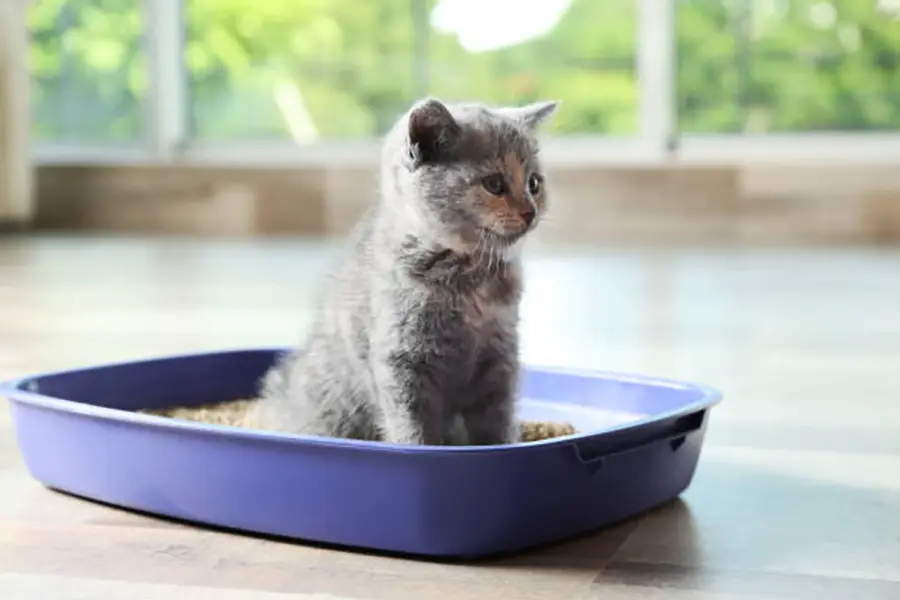
Hematuria, disease of the renal system in the cat
Hematuria is characterized by the presence of blood in the urine. Basically, hematuria is the medical term used for the presence of blood in the urine, both in humans and in cats or other animals. The presence of blood in the urine can be seen with the naked eye or only under a microscope.
The causes of this condition of the kidney system in the cat include many potential factors. Bacterial infections of the cat's urinary or genital tract, cancer in the urinary tract or genital area, the presence of stones in the urinary tract, especially in the bladder and urethra, congenital abnormalities of the urinary tract (including a bladder diverticulum known as de urachus), parasites found in the urinary tract, coagulation disorders leading to bleeding due to low platelet counts, trauma to the kidneys and bladder, and drug-induced hematuria.
Consequences of hematuria can range from unnoticeable to severe, including anemia and extreme weakness.
Idiopathic hematuria, benign in nature originating from the kidneys, is a rare condition but may be associated with anemia.
Common symptoms of this condition of the kidney system in cats include: difficult or painful urination, spasms during urination, frequent passing of small amounts of urine, and abdominal pain. In case of the presence of any of these symptoms, it is recommended to consult a veterinarian urgently. As the causes can be multiple, the cat can suffer from a serious condition.
The treatment will be applied according to the exact diagnosis that the veterinarian will make. This may involve the administration of antibiotics, adjustment of the diet in the presence of stones or kidney failure, fluid therapy for dehydration or to increase the volume of urine excreted. In more severe cases, surgery may be required to remove stones or tumors from the urinary tract or to correct congenital abnormalities.
Chronic kidney disease in cats
Chronic kidney disease is a condition specific to older cats. It is characterized by the progressive deterioration of kidney function, which leads to the accumulation of toxins in the blood that should normally be eliminated through urine. Symptoms of this condition of the kidney system in the cat include weight loss, excessive thirst and urination, lack of appetite, vomiting and difficulty urinating.
Severely ill cats often require hospitalization for rehydration. Any other medical treatment should be instituted only after consulting the veterinarian.
In extreme cases, a final option would be a kidney transplant, but this is a risky and quite expensive procedure, especially for older cats. It is good to consider the risks and benefits before making a decision about this surgery.
Related: Is the cat urinating outside the litter box? How do you solve this problem?
As far as we are concerned, as fish lovers and owners, we have been able to keep these urinary tract problems at bay with proper nutrition and litter box hygiene. In pet shops you can find special food to support the urinary system of cats in optimal conditions.
